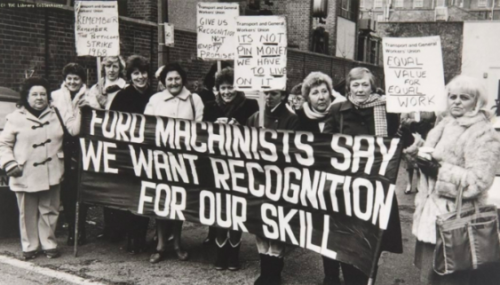

Do you see this glass as half-full or half-empty?

Source: The Independent.
The answer to this often repeated question separates people into one of two categories; those who see the glass half-full and those that see the glass half-empty. People who see the glass as half-full tend to be optimistic. They believe that life will work out for them, that something good is just over the horizon. Meanwhile, those who see the glass as half-empty tend to be pessimistic. Life strives to disappoint the people that live it, disappointment mitigated only by a persistent negative expectation. However, it is not only this clear cut divergence in attitude which can influence the way we live our life. Subtler distinctions have a major role in determining how our culture and societies are structured.
One of these distinctions is between hope and optimism, both generally positive terms. The Oxford English Dictionary defines hope as “desire combined with expectation.” Meanwhile, it defines optimism as “the character or quality of being for the best.” On the surface, both of these terms seem very similar. They share a positive attitude toward future events. Delving deeper, though, exposes an important difference in the way a hopeful person approaches life compared to an optimistic person.
Let’s begin with optimism, “the character or quality of being for the best.” This definition tells us that whatever happens to the optimistic person, it will have been the most desirable outcome. It implies that the individual should not wish to change their actions or their situation. After all, the end result is the greatest it could have been, the greatest it will be. Personal responsibility is sacrificed to the whims of fate. Hope, however, pairs this expectation of something positive happening in the future with personal action- the “desire” component. Where optimism is passive, hope actively calls for the hopeful to work toward what is hoped for.
The concept of what is “the best” continues to change. In the famously optimistic United States of America, “the best” is the American Dream. The American Dream has evolved from a shared destiny of equality and justice towards gaining individual wealth. Jared Keller notes that Americans tend to believe that their success in life, in terms of this modern material understanding of the notion, depends mostly on their own actions and what is within their control. Further studies have also shown that Americans tend to (optimistically) overestimate their ability to reach and stay in the wealthiest portion of the country.

Source: Vanity Fair.
This optimism significantly affects the way America functions as a nation, specifically in the way employer-employee relations are conducted. The belief that one can, and in many cases will, succeed through their own hard work and effort makes one considerably more inclined to work within existing labour systems. Interest would be concentrated around maintaining the status quo, or in some cases even supporting tax cuts to the wealthy, to sweeten the deal when Americans achieve the success they inevitably earn through their hard work. This has led to support of trickle-down economics, which has been shown to instead increase inequality and keep citizens from sharing in their collectively produced value.
This attitude materialises itself through a lack of support for labour unions and an emphasis on equal opportunity rather than equal outcomes. The way companies reward individual performance meshes well with the modern-day understanding of America as an individualistic nation. One need not be concerned with fighting for greater benefits for their current position, since soon enough they’ll be climbing up the economic ladder. Similarly, even if weaker unions lead to greater income inequality, there is little concern or inclination to join a union. The American belief that there is opportunity for the hard-working has led to a belief that such inequalities are similarly fair, since one should receive what one puts in. Furthermore, even with the recent public approval of unions within the US, threats of reprisals seek to deter any worker mentality which isn’t over-working optimism.
Let us return, though, to “desire combined with expectation” and hope’s connection to French workers. A poll conducted in 2017 indicated that among 25 developed countries, the French people were the least optimistic. However, a lack of optimism and hope is not mutually exclusive. If anything, a reduced level of optimism simply signals that French workers have tempered their expectations for the future with a healthy desire to actually achieve that change rather than either waiting for the change to occur on its own, or trying to individually succeed within such a system.

Source: Eurogunzel.
Recent French protests against government policies regarding raising the retirement age have seen two thirds of French teachers march, 75% of railway trips cancelled and France’s energy output only hit 80% of its normal levels. Despite working less hours compared to other advanced nations even prior to these strikes, French workers nonetheless work harder than their European counterparts, and only slightly less than American workers. While the reforms the workers are protesting against are reasonable to some, the strikes themselves indicate an attitude of responsibility and of expectations for wider impact. The French workers believe they can influence the system they live and work under through collective action, and that this change can only come about if they themselves act. Such an inclination to act is a far cry from the static American approach to their employers.
Where American workers have only recently broken their trend of trying to thrive as individuals within the established system, recent French strikes continue a long history of fighting for labour rights through collective action. Though, it is important to note that this is a history that is shared with the US, which itself used to have strong union membership. Indeed, French unions are even losing influence due to the same factors that led to the downfall of American unions. Despite this though, French actions still indicate a hopeful attitude. While unions seem to some French citizens no longer able to fully represent them, they have found outlets through indicating their views politically.
Establishing a union or finding a similar outlet indicates a high degree of engagement and belief of being able to change a situation. We can compare America’s new (or re-established) unions to the workers who left the American workforce entirely during the Great Resignation. Rather than approaching management through collective action to advocate for better working conditions, improvements to toxic work culture and improved management empathy, the most common reasons to resign during that period, refusing to work toward that change in any way signifies a crushed sense of optimism. When optimism for the American Dream is crushed, the result is workers unable to see any point in working at all.

Source: Workers Liberty.
In general, hope and optimism are two similar but very distinct concepts. A culture founded on hope is fundamentally different to one founded on optimism. Optimistic workers tend to accept poorer working conditions and wages in pursuit of individual success within the established economic system, as is the case in the US. Hopeful workers instead take action against perceived unfairness, refusing to passively accept the status quo and working towards a more collectively positive future, as in France.
It must be remembered that the employment landscape continually changes, and that the optimism that informed America’s current economic system was one that in the past delivered great wealth and material gain for its citizens. In our current historical moment, however, it would seem that the workers would be better guided through a hopeful attitude rather than an optimistic one.
References:
Barbero, M. (n.d.). France’s Labor Pains. Foreign Policy. Retrieved March 13, 2023, from https://foreignpolicy.com/2023/03/01/france-macron-labor-unions-protest-strike-pension-reform/
Diamond, A. (2018, September 20). The Original Meanings of the “American Dream” and “America First” Were Starkly Different From How We Use Them Today. Smithsonian; Smithsonian.com. https://www.smithsonianmag.com/history/behold-america-american-dream-slogan-book-sarah-churchwell-180970311/
French workers strike to keep their lavish pensions. (n.d.). The Economist. Retrieved March 13, 2023, from https://www.economist.com/europe/2019/12/12/french-workers-strike-to-keep-their-lavish-pensions?gclsrc=aw.ds&gclid=Cj0KCQiAjbagBhD3ARIsANRrqEuzgja9iJUs3NH0oUtugCk0JBdrO0-7os64KRK2e3et93Fc8a5WHJ8aAnyGEALw_wcB
Ghilarducci, T. (n.d.). France Pension Protests Are A Reminder: Americans Have An Even Harder Path To Retirement. Forbes. Retrieved March 13, 2023, from https://www.forbes.com/sites/teresaghilarducci/2023/03/09/while-french-workers-strike-to-protect-their-pensions-us-elders-fear-more-social-security-cuts/?sh=6b97ab1a413f
Hogler, R. L. (2015). The End of American Labor Unions: The Right-to-Work Movement and the Erosion of Collective Bargaining. ABC-CLIO.
Keller, J. (2015, March 25). Why Are Americans So Freakishly Optimistic? The Atlantic. https://www.theatlantic.com/politics/archive/2015/03/the-american-ethic-and-the-spirit-of-optimism/388538/
Leiser, S. (n.d.). Will Americans finally start fighting back against tax cuts for the rich? The Conversation. Retrieved March 13, 2023, from https://theconversation.com/will-americans-finally-start-fighting-back-against-tax-cuts-for-the-rich-89427
Lucas, A., Elias, J. (2022, May 7). Employees everywhere are organizing. Here’s why it’s happening now. CNBC. https://www.cnbc.com/2022/05/07/why-is-there-a-union-boom.html
Merrefield, C. (2021, October 4). Inequality, labor unions and the Great Compression. The Journalist’s Resource. https://journalistsresource.org/economics/inequality-labor-unions/
Noack, Rick. (2023, March 7). Striking French workers dispute that they want a right to ‘laziness’. The Washington Post. https://www.washingtonpost.com/world/2023/03/07/france-strikes-pensions-transport/
Oxford English Dictionary. (n.d.). Retrieved March 13, 2023, from https://www.oed.com/view/Entry/88370?rskey=lhVPEY&result=1#eid
Samuels, Alana. (2022, October 13). Some Companies Will Do Just About Anything to Stop Workers from Unionising. Time Magazine. https://time.com/6221176/worker-strikes-employers-unions/
Sull, D., Sull, C., & Zweig, B. (2022, January 11). Toxic Culture Is Driving the Great Resignation. MIT Sloan Management Review. https://sloanreview.mit.edu/article/toxic-culture-is-driving-the-great-resignation/
Willige, Andrea. (2017, February 2). Feeling good about 2017? These are the most – and least – optimistic countries. World Economic Forum. https://www.weforum.org/agenda/2017/02/optimistic-pessimistic-countries-2017/
The CAINZ Digest is published by CAINZ, a student society affiliated with the Faculty of Business at the University of Melbourne. Opinions published are not necessarily those of the publishers, printers or editors. CAINZ and the University of Melbourne do not accept any responsibility for the accuracy of information contained in the publication.